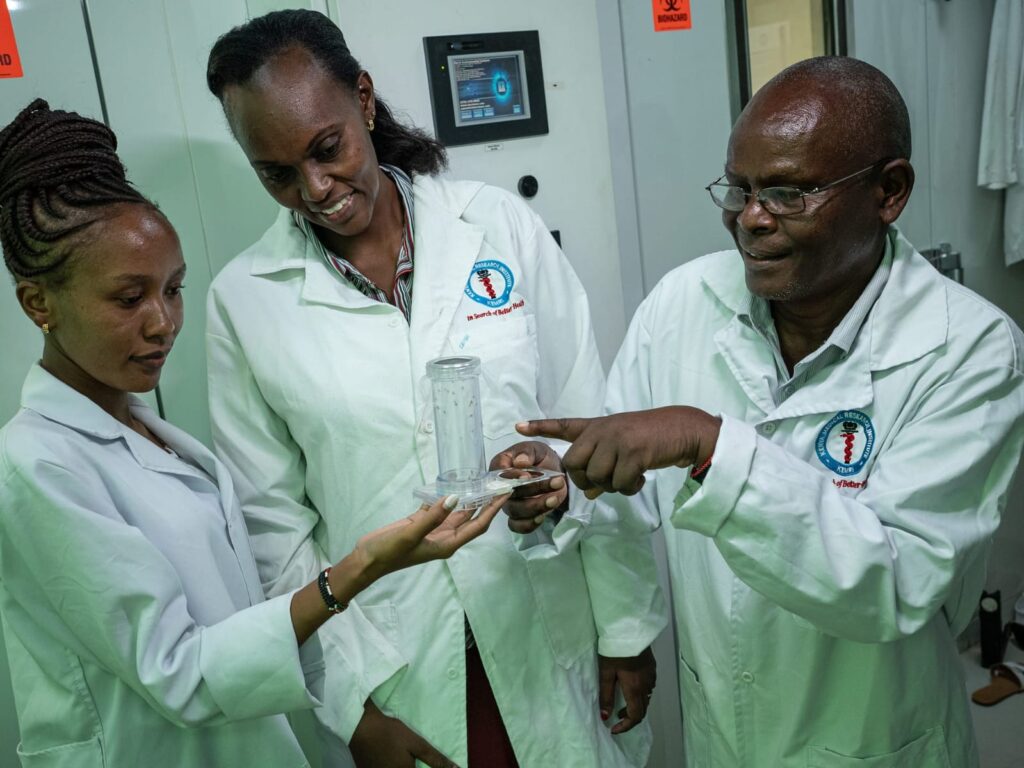
TOKYO- Japan The Drugs for Neglected Diseases initiative (DNDi), co-founded by the Kenya Medical Research Institute (KEMRI), has been awarded the Hideyo Noguchi Africa Prize in Tokyo for its groundbreaking work in developing new treatments for neglected diseases, including sleeping sickness.
Kenya’s Global Health Victory
In just over two decades, DNDi has developed 13 new treatments for six deadly diseases nine of them from Africa. Among its most celebrated breakthroughs is fexinidazole, the first all-oral cure for both gambiense and rhodesiense forms of sleeping sickness, a disease that once required painful injections and long hospital stays.
“This recognition is proof of the power of a model for medical innovation driven purely by patients’ needs, where African scientists are leading the charge against diseases that have long burdened our communities,” said Prof Samuel Kariuki, DNDi Continental Lead Africa and Eastern Africa Director.
Kenya Declared Free of Sleeping Sickness
The award comes just days after Kenya marked a historic public health milestone. Kenya’s elimination of sleeping sickness was validated on June 16, 2025, and publicly declared by the World Health Organization on August 8, 2025.The World Health Organization (WHO) certified Kenya as having eliminated human African trypanosomiasis (HAT) as a public health problem.
First reported in Kenya in the early 20th century, sleeping sickness once devastated rural communities. Kenya’s sustained surveillance and control efforts meant no new local cases have been reported in more than a decade, with the last indigenous case recorded in 2009. The country now joins the global list as the tenth nation worldwide, and the second in Africa, to eliminate the disease.
Kenya’s Science Leadership
For Kenya, DNDi’s global recognition carries special weight, given its deep partnerships with KEMRI that underpinned this milestone.
“As one of DNDi’s founding partners, KEMRI is immensely proud to see DNDi recognized for its outstanding contributions, and for our shared commitment to addressing neglected diseases,” said Prof Elijah Songok, Director General of KEMRI. “It demonstrates that when African institutions lead research initiatives, we achieve global impact. This prize validates the critical role African research institutions play in advancing global health equity.”
Beyond Sleeping Sickness
DNDi’s work has gone far beyond sleeping sickness. It led the world’s first clinical trial for mycetoma, a chronic, disabling infection of the skin and bones caused by fungi or bacteria. The organisation has also improved therapies for leishmaniasis (commonly known as kala-azar), a parasitic disease spread by sandflies that can damage internal organs if untreated, and created child-friendly HIV treatments in easy-to-take formulations.
Africa’s Highest Medical Honour
The Hideyo Noguchi Africa Prize, awarded every three years by the Government of Japan, is regarded as Africa’s highest medical honour. Established in memory of Japanese bacteriologist Dr Hideyo Noguchi (1876–1928), who devoted his life to studying yellow fever in Africa, the prize celebrates individuals and organizations making lasting contributions to public health and medical research on the continent.
The selection process is rigorous. Sub-committees under the Japan Society for the Promotion of Science (JSPS)and theWHO Regional Office for Africa (AFRO) review nominations and recommend finalists in two categories that is: Medical Research and Medical Services. The final decision rests with the Prime Minister of Japan, following expert committee deliberations.


